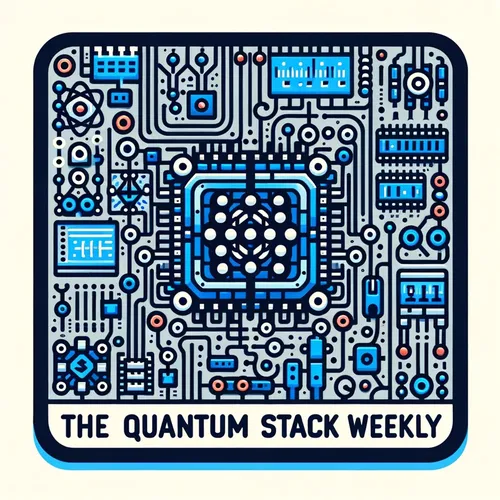Quantum-Inspired VeloxQ: Outpacing Annealers on Classical Hardware
- Author
- Quiet. Please
- Published
- Fri 05 Sep 2025
- Episode Link
- https://www.spreaker.com/episode/quantum-inspired-veloxq-outpacing-annealers-on-classical-hardware--67646340
This is your The Quantum Stack Weekly podcast.
Lightning doesn’t always strike twice, but in the quantum world, probability rules, and sometimes—like this week—the improbable emerges as headline news. I’m Leo, your friendly Learning Enhanced Operator, and here’s the latest on the quantum horizon.
Just yesterday, the Polish startup Quantumz.io announced VeloxQ, an algorithm that’s already sending ripples through both quantum and classical computing communities. What’s stirring the excitement? VeloxQ isn’t running on quantum hardware—yet. It’s a quantum-inspired optimizer, leveraging algorithmic tricks honed from quantum annealing, pushed to run on classical processors. And here’s the kicker: in standardized benchmarks that typically showcase the unique strengths of D-Wave’s quantum annealers, VeloxQ outperformed not only classical heuristics but also D-Wave’s own Advantage quantum hardware.
Imagine this as the quantum equivalent of a Formula 1 car built for the track suddenly overtaking on city streets—using the same fuel as everyone else but squeezing out performance by reimagining the mechanics. In practical terms, this means supply chain logistical challenges, network optimization, and portfolio balancing, all previously reserved for bleeding-edge quantum devices, can now be tackled—blazingly fast—on conventional infrastructure.
Behind this leap, Quantumz.io’s founder, Dr. Emilia Nowak, credits the team’s ingenuity in translating quantum principles—like tunneling through complex energy landscapes—into efficient classical code. They learned from the limitations and finesse of real quantum annealers, then reversed the usual question: What if, instead of trying to make classical machines more quantum, we made quantum ideas more classical? It’s a fresh inversion—and a testament to the strange, often poetic dialogue between theory and hardware.
Stepping through the halls of Quantumz.io, you’d find their workspace alive with the whir of cooling fans, walls scrawled with Hamiltonians and constraint maps, whiteboards crammed edge-to-edge with energy curves plotted against time. The air shimmers with the sort of creative urgency one sees in both jazz improvisation and phase estimation routines inside a quantum lab.
Make no mistake: VeloxQ doesn’t obsolete quantum hardware, nor does it make physical qubits any less essential. Rather, it expands the frontier. The algorithm’s edge is rooted in distilling powerful quantum strategies—like rapid exploration of massive solution spaces—making them deployable in today’s data centers. The upshot? Companies can scale their optimization without waiting for the ever-elusive, error-corrected quantum future.
As with all things quantum, the lines blur. Where does “classical” end and “quantum” begin? This story reminds me that the future of computing, like the future of our societies, is about hybridization—melding old and new, parallel and sequential, certain and probabilistic.
Thanks for tuning in to The Quantum Stack Weekly. If you have questions or want a specific topic discussed on air, just send an email to [email protected]. Don’t forget to subscribe and tell a friend. This has been a Quiet Please Production. For more information, check out quietplease.ai.
For more http://www.quietplease.ai
Get the best deals https://amzn.to/3ODvOta
